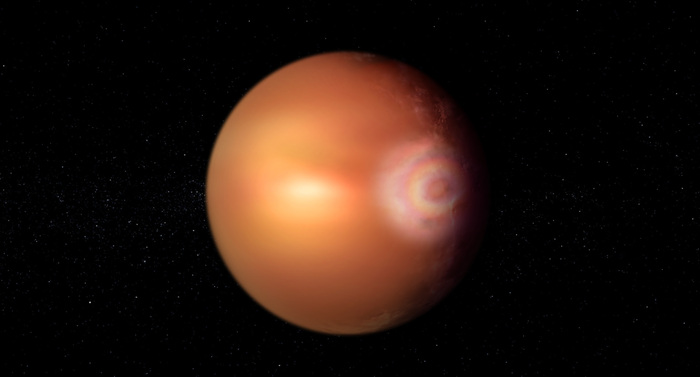Icon: enlarge
With a diameter of 12,000 kilometers, Venus is roughly the size of the Earth
Photo: Imaginechina-Tuchong / imago images
Nasa is currently thinking more intensively about missions to Venus.
The US agency for space travel and flight science is reacting to a new discovery about our neighboring planet.
Researchers had detected traces of the gas monophosphine in the Venusian atmosphere - this compound is only produced by microorganisms on Earth.
Although the study and the nature of Venus tend to raise doubts that some kind of life could actually be the origin of the gas, two planetary science missions to Venus are now to be examined again.
The decision on the new NASA missions will be made in April.
The US space agency already shortlisted four proposed missions in February; they are currently being weighed up by a NASA committee.
The "Davinci +" program aims to fly a robotic probe to Venus and examine the atmosphere.
Researchers have long been trying to explore the dense gas mantle of our planet closest to the sun.
Microorganisms could possibly live at high altitudes and produce phosphine, a compound made up of three hydrogen atoms and one phosphorus atom.
"If you want to investigate the results of the study, then 'Davinci' is the logical choice because you just have to travel there and see what is going on in the atmosphere," said astrobiologist David Grinspoon, one of the participating researchers at NASA -Program.
The second Venus mission that is currently being given more thought is "Veritas".
A probe should also be used for this.
But she would rather concentrate on geological issues and examine the surface of the planet.
Technical equipment such as a near-infrared spectrograph and radar image data help.
The program would last about three years.
Nasa may also decide to implement both missions.
The latest Venus study produced surprising results for a number of experts.
The planet, also known as the morning and evening stars, is considered extremely hostile to life.
The surface temperature is around 500 degrees Celsius, the pressure is as great as in more than 900 meters of water.
The search for extraterrestrial life in our solar system has therefore not yet focused on the planets that are between 40 and 260 million kilometers from Earth.
Mars seemed to be the much more obvious home of life so far.
It was only in July that NASA started a rover to look for traces of past life.
In light of the new findings, NASA chief Jim Bridenstine said it was "time to prioritize Venus."
Icon: The mirror
joe / Reuters






